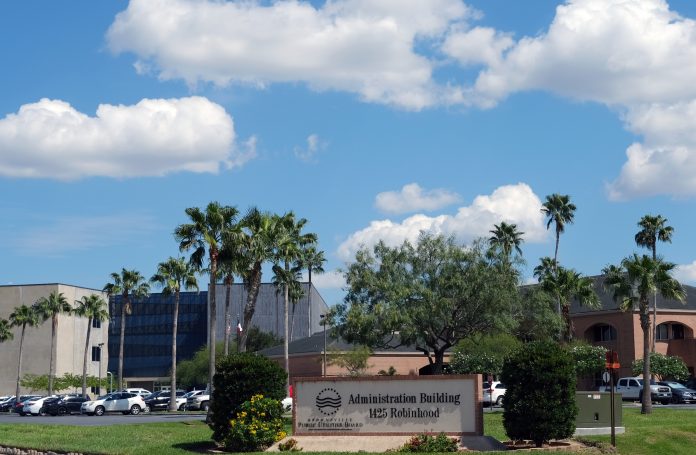
The process of rebating $29 million in Tenaska equity funds to Brownsville Public Utilities Board ratepayers is turning out to be anything but fast or easy, as BPUB directors were reminded at their Jan. 9 regular meeting.
The money is what’s left of funds generated by rate hikes to pay for BPUB’s share of the failed Tenaska Brownsville Generating Station, though getting it back to customers involves threading a needle through the requirements of a related city bond ordinance, according to Mike Perez, BPUB director of finance.
His presentation to the board highlighted four steps necessary to ensure compliance with the ordinance while implementing the rebate. The first step calls for a designated financial officer to issue a certificate attesting that the BPUB system will be able to generate enough revenue to cover debt-service obligations. The second step requires a governing body to make a “finding and determination in alignment with the certificate.”
Steps three and four call for BPUB to recommend action based on written certification from a nationally recognized consulting engineering firm, and for rating agencies to “provide letters affirming action will not result in a withdrawal or lowering of (bond) rating.”
Within those four steps are 14 separate actions, which Perez delineated in a timeline that was also part of his presentation. The first action, which has already been taken, is for a Request for Proposals to be published to start the ball rolling on finding a consulting engineering firm as required by the pertinent section of the bond ordinance.
A plan for implementing the rebate would eventually have to be approved by the Brownsville City Commission. According to the timeline, no rebate funds would be distributed until after April 18. Before that can happen, however, the consulting engineer’s report must to be finalized. As stipulated by the bond ordinance, that report must include written certification that implementing the rebate plan “would not impair the reliability, efficiency or availability of utility service required to be delivered to customers of the (BPUB) system.”
BPUB bond counsel James Hernandez said that after several discussions on the particular bond ordinance provision, it became clear that a rebate plan could not be implemented without triggering the ordinance’s requirements.
“I’ve been unable to get comfortable that this section does not apply, and as a result I’ve recommended to the finance staff that we recommend to the board that we go through these requirements under the bond ordinance in order to put ourselves in the best position possible with respect to complying with the bond ordinance covenants, and making sure our bond holders are satisfied with what we’re doing,” he said. “And that would require going through these four steps.”
Board member Joseph Hollman asked, “What happens if we skip all this?”
Hernandez replied that it would put BPUB out of compliance with the bond ordinance and erode the utility’s trustworthiness within the bond market.
“You could have a bond holder sue to mandate compliance,” he said. “And if there’s an adverse action such as a rating agency downgrade, and it impacts the pricing of the bonds, that could cause them to incur damages, the loss of value of the bond that they purchased. I would not recommend that you not comply with the requirements of the bond ordinance.”
BPUB Chairman Arthur “Art” Rendon expressed dismay that the process of returning money to ratepayers is being delayed so long.
“That’s the most difficult part for me to process,” he said. “This is going to take several months.”




